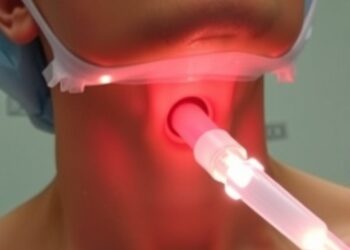DETROIT — Fu-Shin Yu, Ph.D., professor of ophthalmology, visual and anatomical sciences in the Wayne State University School of Medicine, received an award from the National Eye Institute of the National Institutes of Health for his study aiming to reverse the adverse effects of diabetes on eyesight.
DETROIT — Fu-Shin Yu, Ph.D., professor of ophthalmology, visual and anatomical sciences in the Wayne State University School of Medicine, received an award from the National Eye Institute of the National Institutes of Health for his study aiming to reverse the adverse effects of diabetes on eyesight.
The five-year grant for $2,167,882 will benefit Yu’s research “Role of Programmed Cell Death Pathways in Bacterial Keratitis,” Which will investigate biological processes that contribute to defects in immune response in the eyes of those with diabetes and identify methods to reverse them.
“The cornea, located at the front of the eye, is our focus,” said Yu. “We aim to understand why diabetic patients are more suspectable to keratitis, or corneal infection. Why does the disease progress faster in these patients, and why are they more resistant to treatments? Diabetic patients are about 30% more likely to experience corneal infections.”
Yu’s research group uses mouse models of both type 1 and type 2 diabetes, along with Pseudomonas aeruginosa as a model pathogen. In May 2023, the Centers for Disease Control and Prevention (CDC) confirmed 81 cases of a drug-resistant Pseudomonas aeruginosa strain across 18 states, resulting in four deaths, 14 cases of vision loss and four cases of enucleation. This underscores the urgent need to better understand the mechanisms underlying the increased susceptibility and severity of bacterial keratitis in diabetic patients.
Diabetic patients can have a higher incidence of infection, with higher disease severity and an increased resistance to some treatments, resulting in increased susceptibility to the rapid progression of microbial keratitis in the corneas of those affected by diabetes.
“We found evidence that mice are more susceptible to corneal infections,” said Yu. “Our approach involves analyzing samples from the mice’s infected corneas with similar severity. We look at the RNA sequences in the samples and compare the progression of the infection and identify the pathways, or biological processes. By comparing normal pathways to diabetic pathways, we can explore potential treatment avenues.”
The CDC reported that in 2018, approximately 34.2 million people in the United States — roughly 10.5% of the nation’s population — had diabetes.
“The loss of sight can be debilitating, and diabetes, which contributes to sight loss, is a condition that affects countless individuals,” said Ezemenari M Obasi, Ph.D., vice president for research at Wayne State University. “Dr. Yu and other Wayne State researchers are addressing many issues that may have a significant impact on people’s lives now and in the future. It is an excellent example of how Wayne State University is playing a unique and influential role in Detroit and beyond by advancing the health and well-being of our communities.”
The grant number for this National Eye Institute of the National Institutes of Health award is R01EY035785.
# # #
Wayne State University is one of the nation’s pre-eminent public research institutions in an urban setting. Through its multidisciplinary approach to research and education, and its ongoing collaboration with government, industry and other institutions, the university seeks to enhance economic growth and improve the quality of life in the city of Detroit, the state of Michigan and throughout the world. For more information about research at Wayne State University, visit research.wayne.edu.




